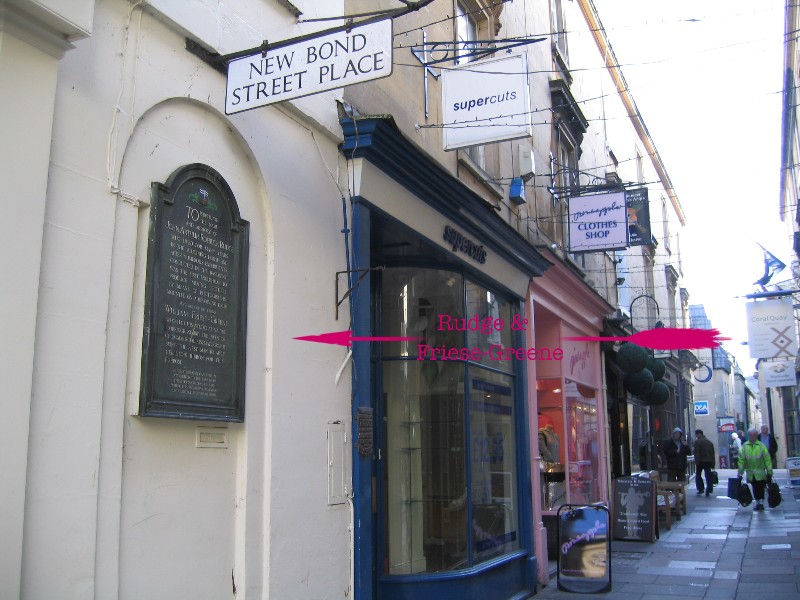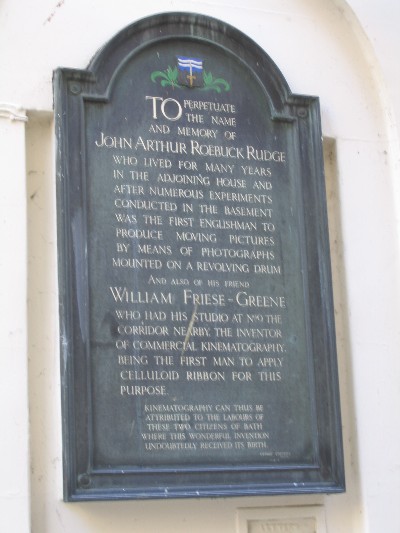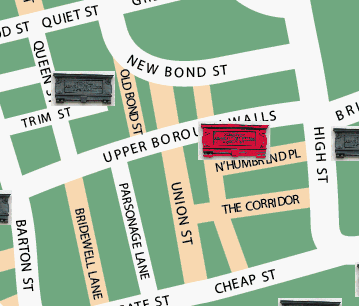William Friese-Greene
Who was he?
Wikipedia:
William Friese-Greene (September 7, 1855 – May 5, 1921) (born William
Edward Green) was a portrait photographer and prolific inventor. He is
principally known as a pioneer in the field of motion pictures and is
credited by some as the inventor of cinematography.
Why was he in Bath?
William Edward Green was born on September 7, 1855, in Bristol. He was
educated there at Queen Elizabeth's Hospital. In 1869 he became an
apprentice to a photographer named Maurice Guttenberg. By 1875 he had
set up his own studios in Bath (at 23, Gay Street) and Bristol, and
later expanded his
business with two more studios in London and Brighton. In Bath he moved
his studio to 9, the Corridor and came
into contact with
John Arthur Roebuck Rudge,
who lived nearby in New Bond Street Place.
He married Helena Friese on March 24, 1874, and decided to modify his
name to include her maiden name.
Location of plaque at New Bond Street Place:


The text reads
"To perpetuate the name and memory of John Arthur Roebuck Rudge who lived
for many years in the adjoining house and after numerous experiments
conducted in the basement was the first Englishman to produce moving
pictures by means of photographs mounted on a revolving drum.
And also of his friend
William Friese-Greene who
had his studio at No. 9 The Corridor nearby, the inventor of commercial
kinematography being the first man to apply celluloid ribbon for this
purpose.
Kinematography can thus be attributed to the labours of these two
citizens of Bath where this wonderful invention undoubtedly received
its birth."
Location map of New Bond Street Place:

(c) 2011
Bath-Heritage.co.uk | Contact us|




